Our family is filled with lots of May babies—-Mom, cousie, sis-in-law, yours truly….and today is DAD’S BIRTHDAY!!!
Dad’s family is originally from the Đà Nẵng and Huế area of Việt Nam—which in my opinion, has DEE BEST food in the country!
The son of a mason, Dad entered the Vietnamese navy and became quite the head honcho. And after our family came to the states, he enrolled at the University of Minnesota (GO GOPHERS!) and became an engineer.
Anyone know what a layout engineer oversees?
Yeah… neither do I. 🙂 I’ve asked Dad to explain it to me a billion of times over the years but my non-science, non-mathematical mind can’t process stuff like that.
But he was awesome at it—and did I mention that he draws the best cartoons/pictures for his grand kids?
There were definitely a lot of perks being the youngest of five kids–particularly since by the time I started junior high, my seester closest in age to me was already in college. Yes, Dad and Mom were still strict with my upbringing but quite honestly, by the time they got to me, they definitely loosened the reigns. Not to mention all of the extra treats I got since the older kids were, well…. older. 🙂
Weekend breakfasts at McDonald’s (to this day, one of my favorite guilty pleasures), excursions for sweet potato-shrimp fritters in Little Saigon……
And one of my childhood favorites–excursions to Sam Woo Restaurant (三和), which now is a popular, thriving restaurant chain.
Sam Woo is known for their Hong Kong and Cantonese style cuisine. But despite their endless menus (both from their Sam Woo BBQ Restaurant and Sam Woo Seafood Restaurant), I’ve always gravitated towards their roasted suckling pig and dumpling noodle bowls.
The luscious roasted pork is lightly seasoned with five spice and topped with it’s beautifully crisped pork skin. Seester calls it “meat candy” and I’m 100% on board with that.
As for their noodle bowls, I mostly see folks ordering their standard wonton noodle soup or duck noodle soups. Both are very good, but really….it’s all about their Sui Gao Noodle Soup. Often also seen as “shui kao”, “sui gow”, “sui kow” or “sui gaw”.
So what’s the difference between “wontons” and “sui gao”?
There are a ton of different explanations to this but when I asked one of the times I was at Sam Woo, they told me that sui gao, or “water dumplings” should be much larger in size than standard wontons.
Second, I was told that along with minced shrimp, there must be “fat” included in the filling. After a little more digging, I realized that he meant lard or chopped pork fat—both can be found in the butcher section of almost any Asian grocery store.
As for me, I opt to skip on the lard and use a fattier ground pork. I find that it still provides just enough moisture and flavor as the lard.
Lastly, they told me that sui gao should have minced water chestnuts for crunch and mushrooms for richer flavor.
Are these the only differences? Well, based on my Sam Woo intel, those are the major differences. But whatever it is…they are freaking delicious.
So to celebrate Dad’s Birthday, I wanted to share with you all my version of Sui Gao Noodle Soup. It’s hearty yet somehow light at the same time…and really, at the end of the day, it’s like having a comforting hug in a bowl.
Sure, it does take a few steps to make but you can definitely make large batches of the sui gao and freeze them for a rainy day. But best of all, while I was folding the dumplings, I couldn’t help but reminisce on all of the wonderful times Dad would take Mom and I for a large bowl of sui gao with roasted pork on the side.
HAPPY BIRTHDAY DAD!!!!! Heo Yeahhh! ❤
______________________________________
Sui Gao Noodle Soup
Makes 6 bowls with additional dumplings
Ingredients:
Sui Gow Dumplings (makes approximately 40-45 dumplings):
½ pound shrimp, shelled and devined
½ pound ground pork
½ heaping cup finely chopped shiitake mushrooms
4-5 water chestnuts, rinsed and minced
1 tablespoon minced garlic
1½ tablespoon finely minced garlic
2 scallions, chopped
2 tablespoons finely minced cilantro
1 teaspoon rice flour or cornstarch
1 tablespoon mirin
2 tablespoons oyster sauce
1 tablespoon soy sauce
¼ teaspoon kosher salt
¼ teaspoon black pepper
½ tablespoon sesame oil
1 package sui gao dumpling wrappers (round dumpling wrappers)
cornstarch
Other:
2 quarts shrimp stock
1 quart chicken stock
2 inch knob fresh ginger
½ small white onion
½ teaspoon black peppercorns
1 tablespoon soy sauce
1 tablespoon fish sauce
12 ounces fresh Chinese egg noodles
1 small bunch bok chok, trimmed and washed
4 ounces beech mushrooms or oyster mushrooms
chili oil
sesame oil
1 scallion, chopped
Prepare the sui gao. On a cutting board, chop and mince the shrimp until it becomes a paste. Transfer to a large bowl and add the remaining items (except the wrappers and cornstarch) for the sui gao filling. Mix all the ingredients until thoroughly combined. Cover with plastic wrap and set aside in the refrigerator for 20 minutes.
Prepare the broth. In a large stock pot, add the shrimp and chicken stock. Add in the ginger, onion, peppercorns, soy sauce and fish sauce. Bring the liquids to a boil and lower to a simmer. Allow the broth to simmer for 20 minutes. Taste and add more soy sauce as needed. Keep warm.
While the broth simmers, prepare the sui gao. Lay one sui gao wrapper on a flat surface. Dip your finger in water and moisten the edge of the wrapper. Place about 1 tablespoon of the filling in the center. Pick up the sui gao and fold it in half. Firmly seal the edges by pinching and pressing the edges together—try and remove as much excess air as possible. Place the filled sui gao on a baking sheet sprinkled with cornstarch or lined with parchment paper to avoid them sticking to the pan. Repeat until all of the filling has been used.
Bring another large pot of water to a boil. Boil the egg noodles according to the package until al dente. Remove the noodles from the pot (saving the boiling water) and drain in a colander. Divide the noodles amongst six bowls.
Using the same pot of boiling water, add 7-8 sui gao dumplings. Once the water comes back to a boil, lower the heat to medium. Boil the sui gao for about 7-8 minutes until they float on the surface of the water, stirring every minute or so. Transfer to a platter and cover to keep warm. Repeat until all the sui gao have been cooked.
To serve, bring the broth to a rolling boil. Drop in the bok choy and mushrooms into the stock. Allow the vegetables to cook for 45-60 seconds and then divide them amongst the six bowls. Top each bowl with 3-4 sui gao dumplings and ladle the hot broth into each of the bowls. Top each bowl with a drizzle of chili oil, sesame oil and scallions. Serve immediately.
*If you would like to freeze the sui gao, place the baking sheet directly into freezer for 4-5 hours after you have assembled them. Be sure that the dumplings are in a single layer and are not touching each other. Once the dumplings have frozen, you may transfer them to a sealed container. They can be kept in the freezer for a few months and should be cooked frozen. Add 1-2 additional minutes to the cooking time when boiling the frozen dumplings.*

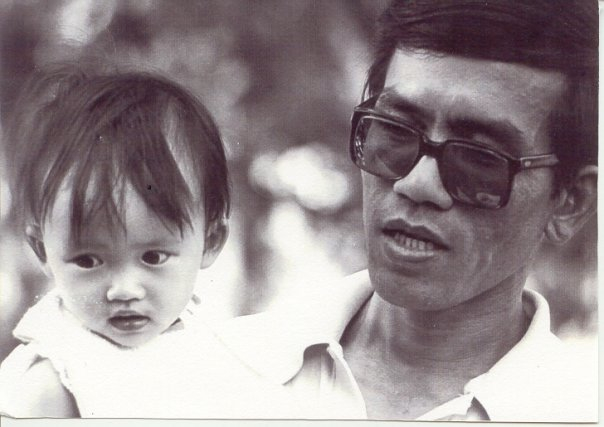

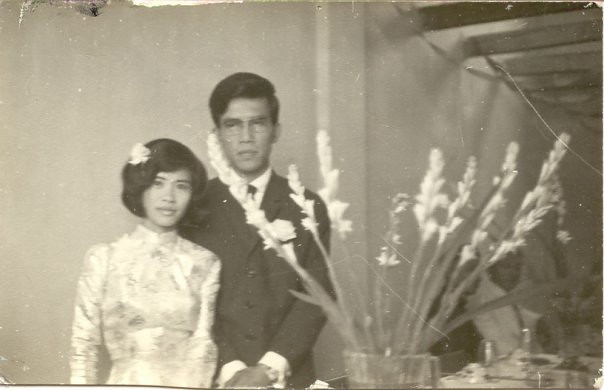
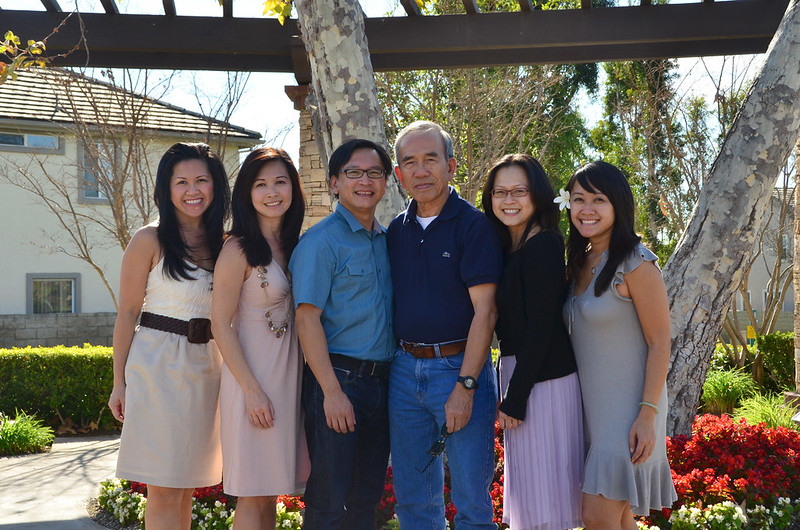
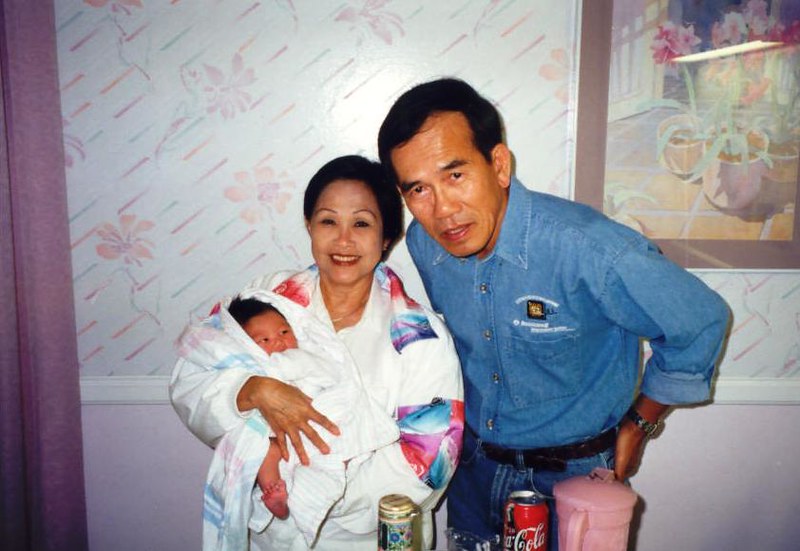
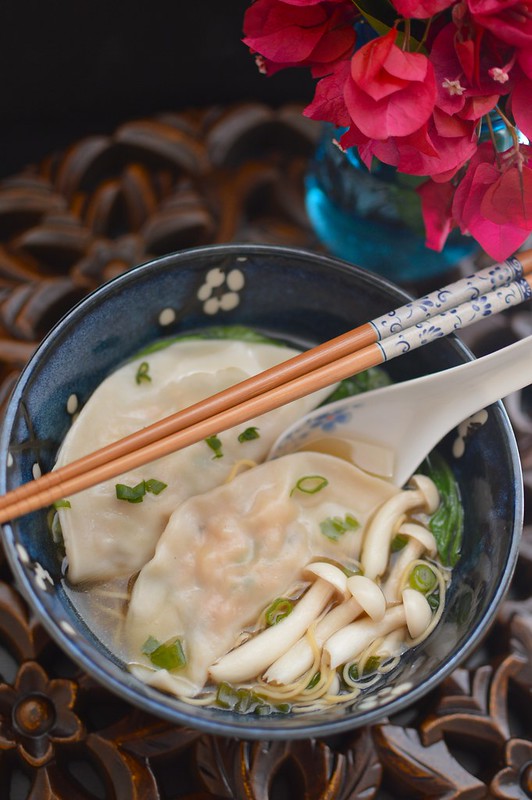
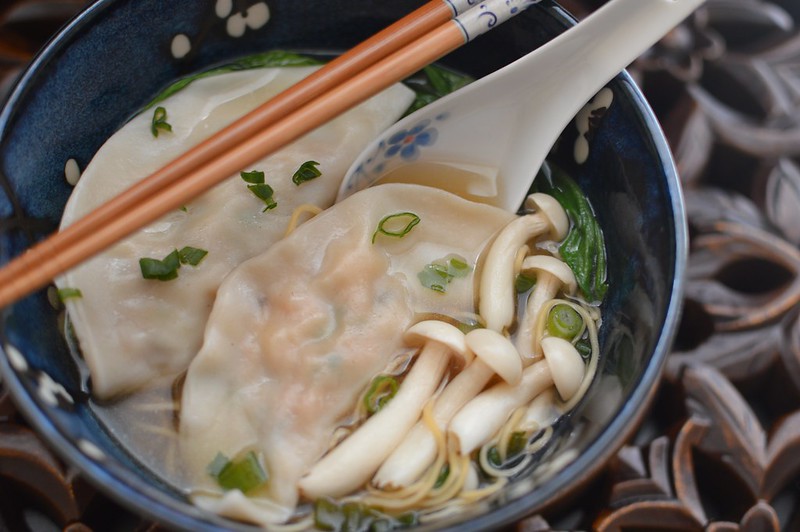
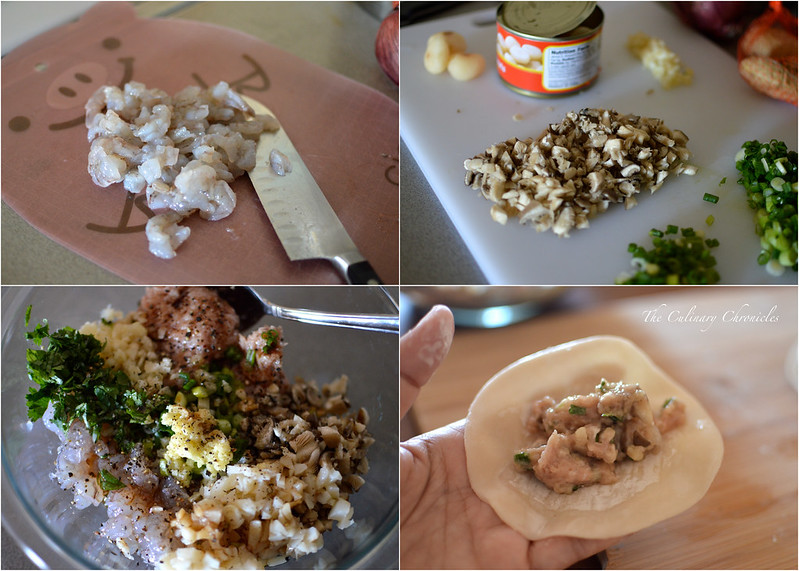
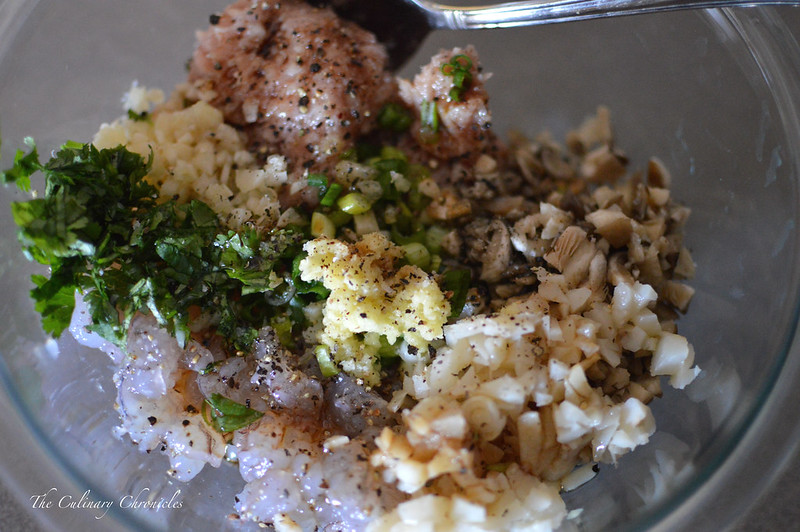
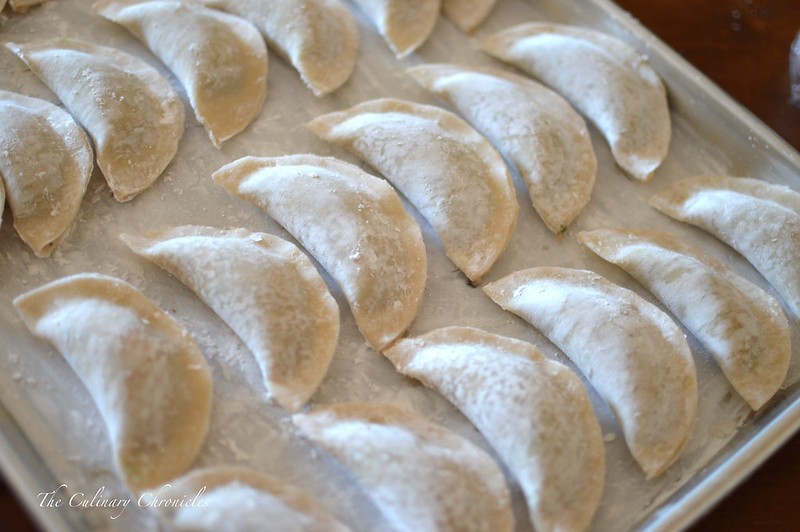
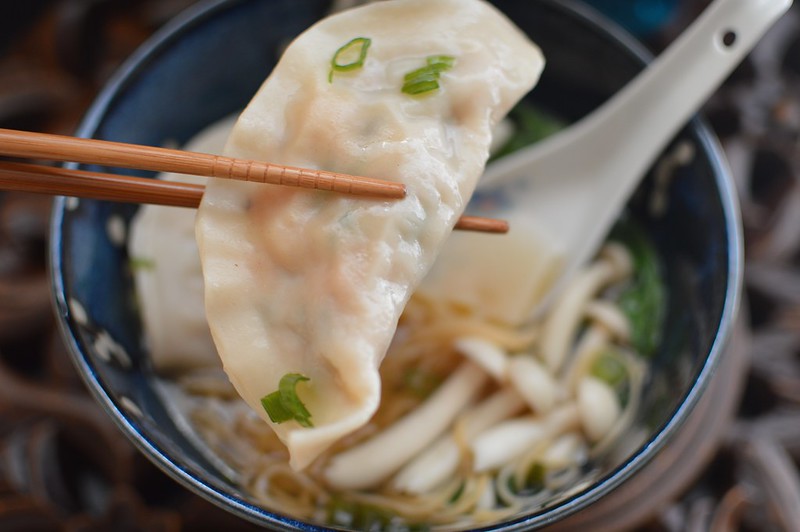
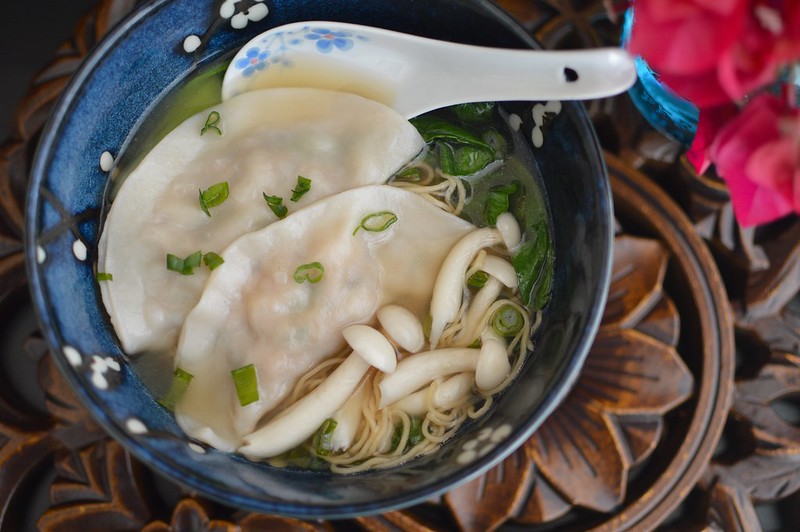
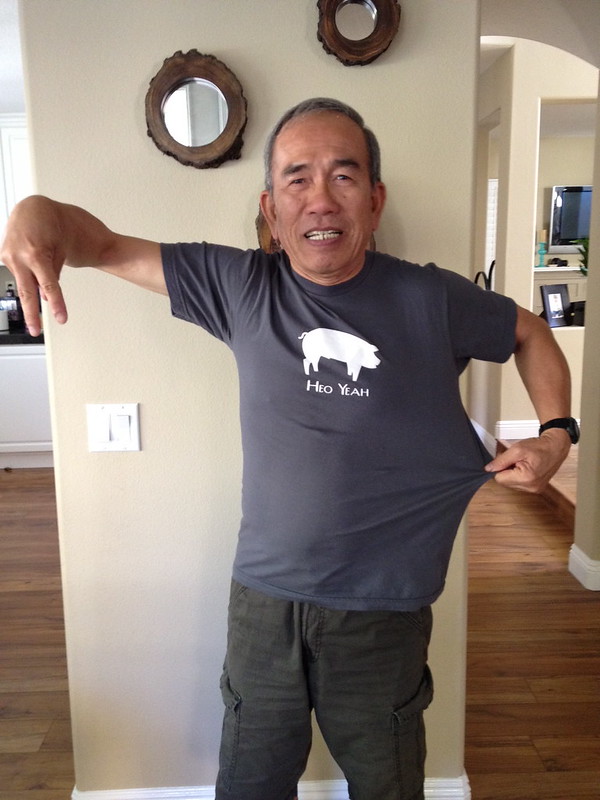
Happy Birthday to your dad! The food looks delicioso!
Hi Nammie,
Thank you for your article on your ” The Culinary Chronicles ” , a warm feeling when I read it. I do not have chance to use your Panera yet, on my BD day, the glue on my lower jaw bridge is not bonding to the post, i have problems now.
Thank you, Nammie.
Sent from my iPad
Hi Dad!! Glad you liked it. Maybe we can go to Sam Woo again soon so you can have noodles for your teeth:) Or maybe Chao??
Your’s is a point of view where real intenligelce shines through.
At last, someone comes up with the “right” answer!
Good post! I stole the phrase meat candy from the king or pork, mr. Bordain!
Reblogged this on mamabatesmotel.